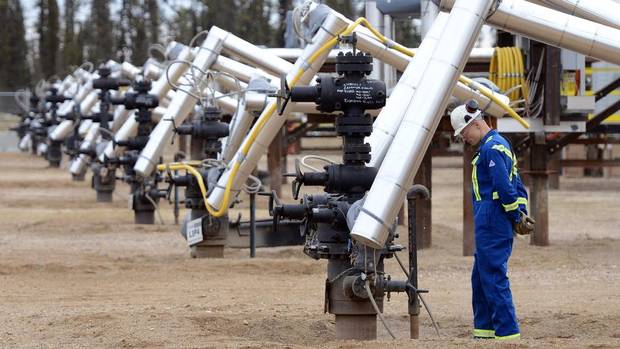Norway’s Statoil ASA has shelved a multibillion-dollar oil sands project, blaming rising construction costs and the repeated delays in new export pipelines that would boost the value of Canadian heavy crude oil.
Statoil said it halted plans for the steam-driven northern Alberta development, called Corner, for at least three years. About 70 jobs will be cut.
Statoil’s move comes as Canadian energy companies grapple with Alberta’s chronically tight labour market – a major factor in industry cost increases – weaker oil prices, limited access to more lucrative overseas markets and growing criticism of the environmental impact of the oil sands. The company has been the target of noisy public opposition in Norway.
Corner is the second major oil sands project to get mothballed this year, following the decision by Total SA and Suncor Energy Inc. in May to suspend work on the $11-billion Joslyn project. The partners also blamed rising industry costs. Royal Dutch Shell PLC, meanwhile, put the brakes on developing an application for a future mine called Pierre River.
“We definitely see that the cost of labour and material has risen, and of course that’s working against the economy of new projects,” said Stale Tungesvik, president of Statoil's Canadian unit.
“We also see that market access is an issue that plays a role. Limited pipeline access is squeezing away the Alberta margins a little bit, making it difficult for sustainable financial returns,” Mr. Tungesvik said.
He declined to give the estimated capital cost of the project, though recent development costs of similar ones suggest it could be more than $2-billion.
Statoil had been planning Corner as a follow-up to a smaller development that is already producing bitumen south of Fort McMurray, Alta., called Leismer. It was being designed with a capacity of 40,000 barrels a day, or double the current output at Leismer.
The split-up of an oil sands joint venture between Statoil and PTTEP, Thailand's state oil company, early this year left the Norwegian company with both leases. Now that Statoil has 100-per-cent ownership of Leismer, its share of production has doubled.
With Statoil’s decision, Pembina Pipeline Corp. said it is forced to scrap plans for a pipeline from the project.
Developers have been proceeding with a growing number of major projects in the region, stretching the labour pool and driving up the costs of steel and equipment used to extract and process the bitumen. However, analysts have said the market has not yet returned to the overheated conditions that existed before the credit crisis in 2008. Nearly all projects in that era faced lengthy delays and hefty cost overruns.
Meanwhile, major export pipeline proposals for Canadian oil, including Enbridge Inc.’s Northern Gateway to the West Coast and TransCanada Corp.’s Keystone XL to the southern U.S., are still awaiting necessary clearances to start building, years after they were first discussed. However, Canadian crude has traded at narrow discounts to benchmark light oil for much of this year, rather than at the deep discounts of 2012 and early 2013, partly because of the industry’s increased capacity to ship oil by rail.
Statoil may be harder hit than other major developers on costs because it has not been moving along steadily with expansions of steam-driven projects as have other companies, such as Canadian Natural Resources Ltd., Cenovus Energy Inc. and MEG Energy Corp., said Michael Dunn, analyst at FirstEnergy Capital Corp.
“Costs are higher now than they were three years ago, but they wouldn’t be first in the queue with all the suppliers and contractors, Mr. Dunn said. “If you don’t have preferential treatment there, it’s pretty hard to do a big project.”
Mr. Tungesvik said the company still sees Canada as a good place to invest, and is moving forward with exploration off the Newfoundland coast. Its Bay du Nord discovery in the Flemish Pass, at an estimated 600 million barrels, was one of the largest offshore discoveries in the world in 2013.
A previous version of this story about Statoil ASA postponing the Corner oil sands project in Alberta incorrectly said the earlier split-up of a joint venture with Thailand's PTTEP played into the decision to shelve the project.
Statoil halts multibillion-dollar Alberta oil sands project

























Laissez un commentaire Votre adresse courriel ne sera pas publiée.
Veuillez vous connecter afin de laisser un commentaire.
Aucun commentaire trouvé